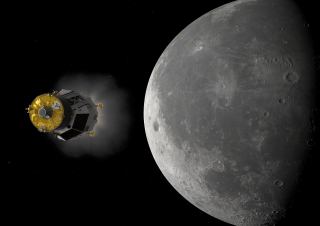Education

Study at MSSL
MSSL offers a range of taught post-graduate courses in space science and technology, space risk and disaster reduction, technology management, complex projects and systems engineering management. We also offer a range of PhD degree opportunities.
Technology Management MSc
The Technology Management Group of UCL's Mullard Space Science Laboratory (MSSL) and UCL Centre for Systems Engineering (UCLse) have pooled expertise to develop this exciting programme, which equips students with the knowledge and skills necessary to develop a career in technology management or engineering management.
Management of Complex Projects MSc
In today's fast-moving, global marketplace, traditional project management techniques based around strategic planning and control are not enough.
Many modern projects are not only complicated (tough technical problems needing co-ordination across many suppliers) but also complex (with unclear requirements).
The new Management of Complex Projects MSc has been designed to produce project managers equipped to lead the most challenging of projects.
Space Risk and Disaster Reduction
Uniting emergency response, disaster risk reduction and space technology this programme is designed to prepare students to work in the fields of satellite technology and disaster response.
Students will explore the management of risk and disaster losses from a range of perspectives, focusing on emerging risks posed to modern technology by space weather and the monitoring of hazards on Earth from outer space.
Students will learn about a wide variety of natural hazards, how to prepare and plan for emergencies and disasters and how to respond. Students will also learn practical aspects of designing, building and operating satellites and spacecraft including the challenges and risks posed by the environment of outer space.
Systems Engineering Management MSc
The Systems Engineering Management MSc has been specifically designed for the needs of engineering professionals working in the field of complex systems development. The programme encompasses not only the technical tools and approaches needed to build success in this area, but also the management dimension of the relevant processes.
Space Science and Engineering: Space Science MSc
The Space Science pathway is focussed on scientific research applications of space technology; it aims to equip participants with a sound knowledge of the physical principles essential to sustain careers in space research and related fields.
Students develop a thorough understanding of the fundamentals of a range of space science fields:
- spacecraft,
- space science instrumentation,
- the space environment,
- space operations
- and space project management.
This MSc effectively transfers to students the knowledge and expertise gained by UCL space scientists over four decades, and is taught by world-recognised researchers in the field.
The programme aims to provide a broad understanding of all aspects of space science together with specialised training in research methods, directly applicable to a career in academia, the public and private sectors.
MSc in Planetary Science
The MSc programme in Planetary Science has a curriculum which is drawn from a variety of academic departments within UCL, including
- Physics and Astronomy.
- Space and Climate Physics (Mullard Space Science Laboratory).
- Earth Sciences.
- Physiology.
- Cell and Developmental Biology.
- Department of Earth and Planetary Sciences at Birkbeck College.
The programme thus has a strong interdisciplinary flavour, in line with the ethos of the Centre for Planetary Sciences at UCL/Birkbeck.
The combination of taught courses, tutorials and project work allows prospective students to study a wide variety of topics related to planetary and space environments, such as: planetary interiors, atmospheres and magnetospheres; the impact of the space environment on human physiology and life; and the application of current knowledge to investigations of extrasolar planets - worlds in other stellar systems.
Image credit: Heracles on the moon © ESA
 Close
Close

